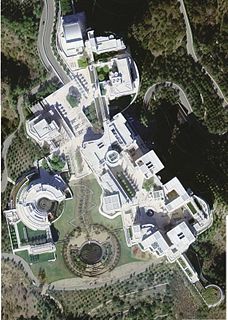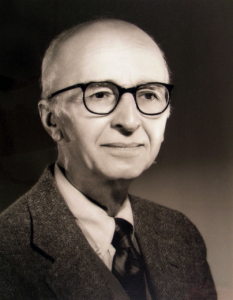Related Research Articles

Patricia Smith Churchland is a Canadian-American analytic philosopher noted for her contributions to neurophilosophy and the philosophy of mind. She is UC President's Professor of Philosophy Emerita at the University of California, San Diego (UCSD), where she has taught since 1984. She has also held an adjunct professorship at the Salk Institute for Biological Studies since 1989. She is a member of the Board of Trustees Moscow Center for Consciousness Studies of Philosophy Department, Moscow State University. In 2015, she was elected a Fellow of the American Academy of Arts & Sciences. Educated at the University of British Columbia, the University of Pittsburgh, and Somerville College, Oxford, she taught philosophy at the University of Manitoba from 1969 to 1984 and is married to the philosopher Paul Churchland. Larissa MacFarquhar, writing for The New Yorker, observed of the philosophical couple that: "Their work is so similar that they are sometimes discussed, in journals and books, as one person."

Mary Ellen Miller is an American art historian and academician specializing in Mesoamerica and the Maya.

The Getty Research Institute (GRI), located at the Getty Center in Los Angeles, California, is "dedicated to furthering knowledge and advancing understanding of the visual arts".
John William Servos is an American professor and historian of science. His research centers on the historical development of science as a discourse and in the form of institutions and on how science has situated itself historically in the culture at large.
Eloise Quiñones Keber is Professor Emeritus of Art History at Baruch College and The Graduate Center, CUNY, where she specializes in Pre-Columbian and early colonial Latin American art. She earned her Ph.D from Columbia University in 1984.
David Freedberg is Pierre Matisse Professor of the History of Art and Director of the Italian Academy for Advanced Studies in America at Columbia University. He was also Director of the Warburg Institute at the University of London from July 2015 to April 2017.
Debora Kuller Shuger is a literary historian and scholar. She studies early modern, Renaissance, late 16th- and 17th century England. She writes about Tudor-Stuart literature; religious, political, and legal thought; neo-Latin; and censorship of that period.
Svetlana Leontief Alpers is an American art historian, also a professor, writer and critic. Her specialty is Dutch Golden Age painting, a field she revolutionized with her 1984 book The Art of Describing. She has also written on Tiepolo, Rubens, Bruegel, and Velázquez, among others.
Donna Robinson Divine is Morningstar Family Professor in Jewish Studies and Professor of Government at Smith College. She holds a B.A. from Brandeis University, 1963, and a Ph.D. from Columbia University, 1971, in Political Science. Divine is work is in the fields of Comparative Politics, Middle Eastern Politics, and Political Theory.

Omer Bartov is the John P. Birkelund Distinguished Professor of European History and Professor of History and Professor of German Studies at Brown University.
Steven E. Hyman is Director of the Stanley Center for Psychiatric Research and a member at the Broad Institute of MIT and Harvard. He is also Harvard University Distinguished Service Professor of Stem Cell and Regenerative Biology. Hyman was Provost of Harvard University from 2001 to 2011. As Provost, he was instrumental in the development of cross school and regional interdisciplinary initiatives, especially in the sciences. In 2009 he initiated an extensive process of reform of the Harvard libraries, and he paved the way for the creation of an open access mandate at Harvard.

Alondra Nelson is an American policymaker, writer, and academic. She is the Harold F. Linder Chair and Professor in the School of Social Science at the Institute for Advanced Study, an independent research center in Princeton, New Jersey. She currently serves as acting director of the White House Office of Science and Technology Policy (OSTP) and Deputy Assistant to the President. From 2017-2021, she was president of the Social Science Research Council, an international research nonprofit organization. She was previously professor of sociology at Columbia University, where she served as the inaugural Dean of Social Science, as well as director of the Institute for Research on Women and Gender. She began her career on the faculty of Yale University.

Alva Noë is an American philosopher. He is Professor of Philosophy at the University of California, Berkeley. The focus of his work is the theory of perception and consciousness. In addition to these problems in cognitive science and the philosophy of mind, he is interested in analytic phenomenology, the theory of art, Ludwig Wittgenstein, enactivism, and the origins of analytic philosophy.

Gwendolyn Wright is an architectural historian, author, and co-host of the PBS television series History Detectives. She is a professor of architecture at Columbia University, also holding appointments in both its departments of history and art history. Besides "History Detectives", Dr. Wright's specialties are US architectural history and urban history from after the Civil War to the present. She also writes about the exchange across national boundaries of architectural styles, influences, and techniques, particularly examining the colonial and neo-colonial attributes of both modernism and historic preservation.
The Medici Archive Project (MAP) is a research institute whose mission is to disseminate, publish, and teach archival studies, paleography and the cultural legacy of the Medici Grand Dukes. It is based in Florence, Italy and is directed by Alessio Assonitis.
Seymour SliveOON was an American art historian, who served as director of the Harvard Art Museums from 1975 to 1984. Slive was a scholar of Dutch art, specifically of the artists Rembrandt, Frans Hals, and Jacob van Ruisdael.
D. Graham Burnett is an American historian of science and a writer. He is a professor at Princeton University and an editor at Cabinet, based in Brooklyn, New York. Burnett received his A.B. in history at Princeton University and an M.Phil and Ph.D. in the history and philosophy of science at Trinity College, Cambridge.

Jean Victor Edmond Paul Marie Bony was a French medieval architectural historian specialising in Gothic architecture. He was Slade Professor of Fine Art at the University of Cambridge from 1958 to 1961, Fellow of St John's College, Cambridge, and Professor of Art at the University of California at Berkeley, from 1962 to 1980.
Kathryn Margaret Rudy is a manuscript historian at the University of St Andrews, Scotland. She is best known for her forensic approach to medieval books, and has pioneered the use of the densitometer to measure the grime that original readers deposited in their books. Her research focuses on the medieval reception of manuscripts, how they were manipulated and handled, and how book-making skills were lost with the advent of the printing industry.
Anne Elizabeth Dunlop is a Canadian-born art historian. As of 2022 she is Herald Chair of Fine Art at the University of Melbourne.
References
- ↑ "Smith, Pamela H. | Department of History - Columbia University". history.columbia.edu. Retrieved 12 September 2017.
- ↑ "People". makingandknowing.org. Retrieved 15 September 2017.
- ↑ "The Center For Science & Society at Columbia University". The Center for Science & Society at Columbia University. Retrieved 12 September 2017.
- ↑ "Presidential Scholars in Society & Neuroscience - Columbia University". Columbia University: Presidential Scholars in Society and Neuroscience. Retrieved 12 September 2017.
- ↑ "RSA Executive Board - Renaissance Society of America". www.rsa.org. Retrieved 12 September 2017.
- ↑ "Pamela H. Smith - Faculty - Department of History - Columbia University". History.columbia.edu. Retrieved 13 March 2017.
- ↑ "Pamela H. Smith, Ph.D. - Wissenschaftskolleg zu Berlin". www.wiko-berlin.de. Retrieved 12 September 2017.
- ↑ "Past Winners of the Pfizer Award". Rethinking.asia. Retrieved 13 March 2017.
- ↑ "Pamela H. Smith".
- ↑ "Edelstein Fellowship". Science History Institute . 14 July 2016. Retrieved 27 March 2018.
- ↑ "GRI Scholars (Getty Press Release)". www.getty.edu. Retrieved 15 September 2017.
- ↑ "New Directions Fellowships Recipients | The Andrew W. Mellon Foundation". mellon.org. Retrieved 12 September 2017.
- ↑ "Leo Gershoy Award Recipients | AHA". www.historians.org. Retrieved 5 September 2017.
- ↑ "Kress Fellows 2007" (PDF).
- ↑ "Shelby Cullom Davis Center Fellows".